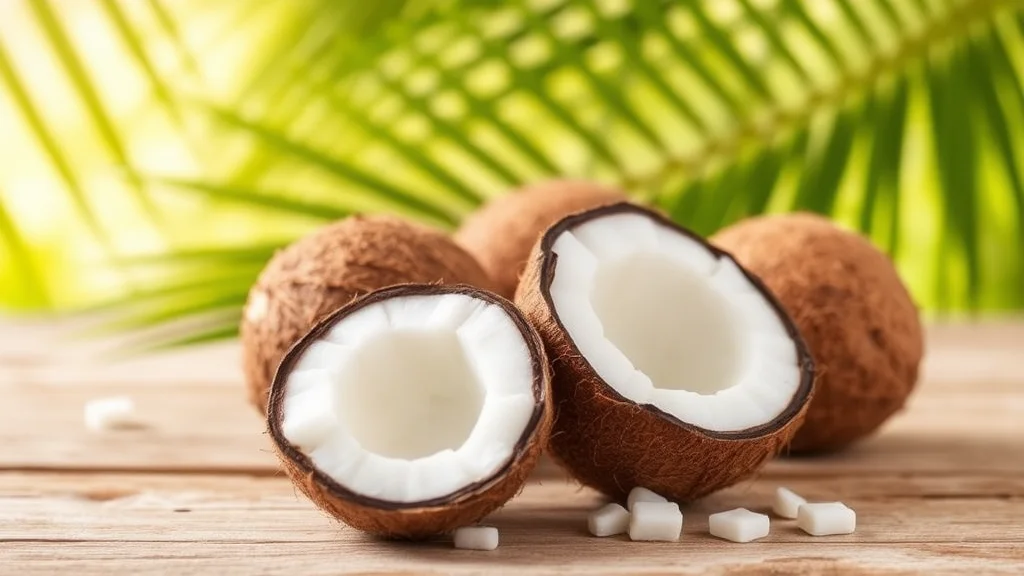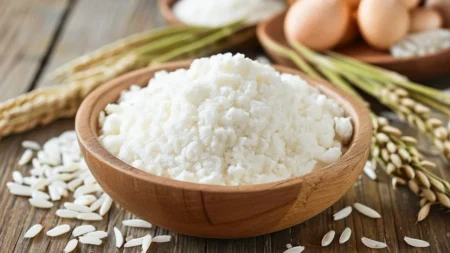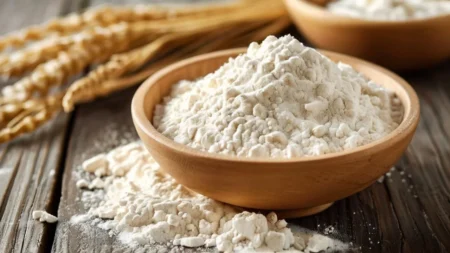Coconut: A Nutrient-Dense Superfood with Multiple Health Benefits
Key Takeaways:
- Coconut is rich in healthy fats, fiber, vitamins, and minerals.
- Coconut products like coconut oil, milk, and water offer a range of health benefits, including improved heart health and digestion.
- While coconut is nutritious, its high saturated fat content requires mindful consumption.

What Is Coconut?
Coconut, scientifically known as Cocos nucifera, is a tropical fruit with a wide range of culinary and health uses. It consists of three parts: the flesh (meat), water, and oil, all of which offer different nutritional benefits. Coconut products are versatile and commonly used in cooking, baking, and skincare. From coconut water to coconut oil, this fruit has made its way into both modern diets and traditional recipes around the world.
Nutritional Profile (Per 100g of Fresh Coconut Meat)
| Nutrient | Amount |
|---|---|
| Calories | 354 kcal |
| Protein | 3.3 grams |
| Carbohydrates | 15.2 grams |
| Sugar | 6.2 grams |
| Fat | 33.5 grams |
| Fiber | 9 grams |
| Potassium | 356 mg (10% DV) |
| Iron | 2.4 mg (13% DV) |
Different Forms of Coconut
Coconut is consumed in various forms, each offering distinct benefits. Understanding the differences can help you make the most out of this superfood.
1. Coconut Meat
The white flesh inside the coconut is called coconut meat. It can be eaten raw or dried, shredded, or made into coconut milk or cream. Coconut meat is rich in fiber and healthy fats, particularly medium-chain triglycerides (MCTs), which can boost metabolism and support brain function.
2. Coconut Water
Coconut water, the clear liquid found inside young, green coconuts, is a hydrating drink low in calories and high in potassium. It’s often used as a natural electrolyte beverage to support hydration, especially after exercise.
3. Coconut Oil
Coconut oil is extracted from the meat of mature coconuts and is composed mostly of saturated fats. It’s widely used in cooking and baking and has become popular for its potential health benefits, including promoting heart health and aiding in weight loss.
4. Coconut Milk
Coconut milk is made by blending coconut meat with water and then straining the mixture. It is rich and creamy, often used in cooking, especially in curries and soups. Coconut milk provides a good source of vitamins and minerals but is higher in calories and fat compared to coconut water.
Health Benefits of Coconut
Coconut and its products offer numerous health benefits when consumed in moderation. Here are some of the most significant benefits:
1. Supports Heart Health
Coconut oil contains lauric acid, a type of saturated fat that may help raise HDL (good) cholesterol levels, which supports heart health. However, it’s essential to consume it in moderation due to its high saturated fat content.
2. Boosts Digestion
The fiber in coconut meat helps support digestion by promoting healthy bowel movements and preventing constipation. Coconut water, on the other hand, contains enzymes that aid digestion and help with nutrient absorption.
3. Enhances Hydration
Coconut water is rich in electrolytes like potassium, magnesium, and sodium, making it an excellent natural hydrating beverage. It is particularly beneficial for athletes or those living in hot climates.
4. Improves Skin and Hair Health
Coconut oil is widely used in skincare and haircare due to its moisturizing properties. It can help alleviate dry skin, improve skin elasticity, and reduce inflammation. It’s also known to strengthen hair and reduce dandruff when applied topically.
5. Provides a Quick Energy Boost
Coconut oil is composed of medium-chain triglycerides (MCTs), which are metabolized differently than other fats. MCTs are quickly converted into energy, making coconut a great food for people looking for a quick, sustainable energy boost.
Potential Drawbacks of Coconut
While coconut offers many health benefits, there are a few considerations to keep in mind.
1. High Saturated Fat Content
Coconut products, especially coconut oil, are high in saturated fats. While these fats can have health benefits, consuming them in excess may increase the risk of heart disease. Moderation is key when incorporating coconut into your diet.
2. Calorie-Dense
Coconut meat and coconut oil are calorie-dense foods. If you’re watching your calorie intake or trying to lose weight, it’s important to monitor your portion sizes when consuming these foods.
Incorporating Coconut Into Your Diet
Coconut can be easily added to various meals and snacks. Here are a few ways to enjoy it:
1. Add Coconut to Smoothies
Coconut water or coconut milk makes a great base for smoothies. You can also add shredded coconut for extra texture and flavor.
2. Use Coconut Oil for Cooking
Coconut oil has a high smoke point, making it an excellent choice for frying, sautéing, or baking. It adds a subtle coconut flavor to dishes.
3. Sprinkle Shredded Coconut on Salads or Desserts
Shredded coconut can be used as a topping for salads, yogurt, or desserts. It adds a nice crunch and a slightly sweet taste.
Coconut in Global Cuisines
Coconut plays a key role in various cuisines around the world. Here’s how it’s used globally:
1. Southeast Asian Cuisine
In countries like Thailand, coconut milk is a staple ingredient in curries and soups. Dishes like Tom Kha Gai (coconut soup with chicken) are popular examples.
2. Caribbean Cuisine
Coconut is often used in Caribbean cooking, particularly in rice dishes like Rice and Peas, where coconut milk is added for richness.
3. Indian Cuisine
Coconut is a common ingredient in South Indian cuisine, where coconut chutney, coconut-based curries, and coconut desserts are popular.
Conclusion
Coconut is a highly versatile and nutritious fruit that offers a wide range of health benefits. From aiding digestion to boosting heart health, coconut and its products can be a valuable addition to a balanced diet. However, due to its high saturated fat content, it’s essential to consume coconut in moderation. Whether you’re using it in cooking, baking, or as a hydrating beverage, coconut is a superfood that can fit into a variety of healthy diets.
FAQ
Q: Is coconut good for weight loss?
A: Coconut, particularly coconut oil, contains medium-chain triglycerides (MCTs), which may boost metabolism and promote fat burning. However, it’s calorie-dense, so moderation is important.
Q: How much coconut oil should I consume daily?
A: It’s generally recommended to limit coconut oil intake to about 1-2 tablespoons per day, as it is high in saturated fat.
Q: Can people with high cholesterol eat coconut?
A: While coconut oil may raise HDL (good) cholesterol, it also raises LDL (bad) cholesterol. People with high cholesterol should consult their doctor before consuming coconut products regularly.
Q: Is coconut water a good alternative to sports drinks?
A: Yes, coconut water is a natural source of electrolytes like potassium, making it a good alternative to sports drinks for hydration.
Q: Is coconut safe for people with nut allergies?
A: Despite its name, coconut is not a true nut, and most people with nut allergies can safely consume coconut. However, it’s always best to consult with a healthcare professional.










